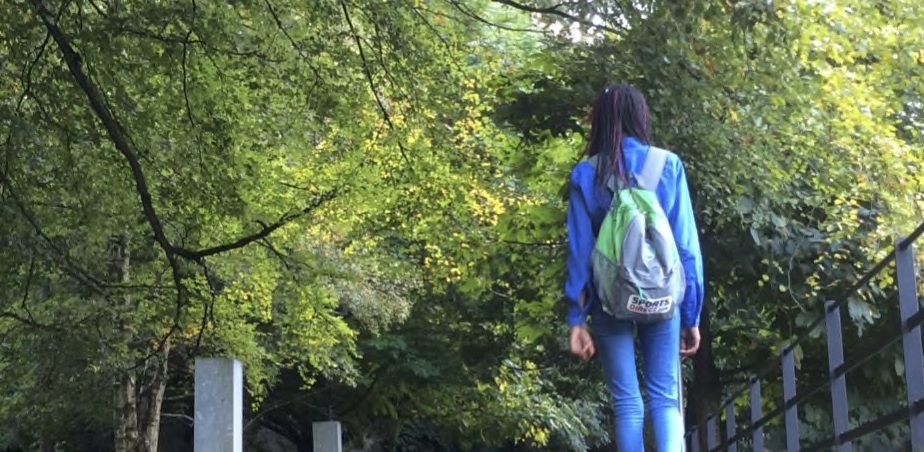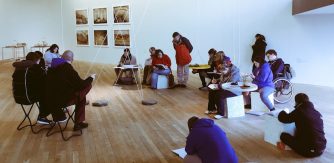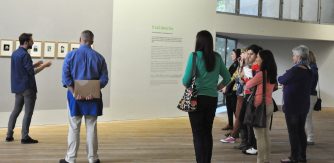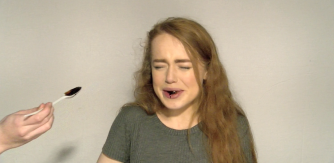Blog 2 – Tadhg Crowley, Curator of Education

ImageCredit: Thamarai Premareji

Tadhg Crowley is the Curator of Education at the Glucksman in University College Cork. The Glucksman presents a wide-ranging programme of temporary exhibitions accompanied by an extensive education programme to engage visitors of diverse interests and backgrounds. A graduate of Limerick School of Art and Design Tadhg’s role at the Glucksman is to help foster an appreciation of the visual arts among the wider public. In early 2015 Tadhg devised and delivered the first Visual Art module on the Certificate in Contemporary Living Course at UCC. Tadhg has expanded the Glucksman schools programme over the past 3 years and in 2015 over 2500 students attended workshops and tours at the gallery. Tadhg introduced the Glucksman Teachers programme in 2014 and it now includes seasonal Art Teachers Masterclasses,Preview Evenings and Summer Course. Tadhg has recently presented at the IMA Annual Education and Outreach Forum and at the inaugural Arts in Education Portal National Day at IMMA. He has lectured on the MA: Art and Process programme at Crawford College of Art & Design as well as the Futures PhD module at University College Cork.
As we enter the teenage years we begin to gain a little more freedom. This new found autonomy provides us with the opportunity to explore our local area (city, town or village) through aimless wanderings and walks or by beginning the process of ownership of our locality in the corners or streets we lay claim to. This process is crucial in the development of civic pride but also in the establishment of a sense of belonging.
For teenagers living in Direct Provision — who live in isolated and restrictive settings — they are not afforded the opportunity to get to know their local area in the same way as other young people.
Navigating the Urban Landscape was an art project that invited teenagers living in direct provision centres in Cork City and County to work with the Glucksman and practicing artists over a six week period in Autumn 2016. Throughout the weekly sessions participants engaged in projects that investigated the idea of dérive (an unplanned journey through an urban landscape) working with different mediums and artists.
The project invited 14 teenagers (ages 12-17 years) from the DP centres in Kinsale Road, Glounthaune, Clonakilty and Drishane Castle to work with practicing artists to create artworks that explored the landscape of the city and offered the group a creative and positive experience. This was an opportunity for these teenagers to interact with artistic ideas and mediums and to discover their own creative and imaginative capabilities away from their prohibitive surroundings.
Young people living in direct provision do not have access to any extra-curricular activities; any encounters with art making they would have in school. The centers are noticeably devoid of facilities.
Teenage years can be difficult for all young people, but to be dealing with the challenges of being a teenager and to also be living in a restrictive and prohibitive situation is incredibly demanding. Any opportunity for this group to engage in positive and stimulating activities can only be beneficial to their development.
From the earliest discussions I had with the artists, we all agreed that one of the primary elements of these workshops should be in providing the teenagers with the skills to continue being creative after the project had concluded. From the photography with Roseanne Lynch to drawing with Cassandra Eustace and film-making with Dervla Baker, all the sessions with the teenagers would focus on enabling the group to develop a set of skills that would allow them to share their stories. We felt it was crucial that what was learnt in the workshops could be taken and used or shared with others back at the centres.
Working with the teenagers was a very different experience than our previous work with younger children living in DP. The younger children had very high energy/excitement levels and their attention would wane quickly and so we found that short activities with immediate results worked best in keeping their focus. On the other hand, the teenagers were very calm, focused and eager to try all the tasks put before them. There was never any sense of hesitation. For the teenagers this opportunity for extra curricular activities was incredibly precious and it was notable how determined they were to make the most of their time at the Glucksman. This level of ambition and focus across the group was not only striking in comparison to the younger children in DP but to other groups of teenagers we have worked with in the past.
The project culminated with an exhibition of the group’s artwork at the Glucksman in early 2017. On what was truly one of my most memorable days working here at the Glucksman, the teenagers returned with family and friends for the exhibition launch party with music, food and good vibes. The day concluded with the inaugural screening of the teenagers short film ‘Undead Revenge’
Reading some of the moving feedback from the teenagers highlights how crucial it is that these young people are cherished and nurtured and that they are provided with the opportunities that we all deserve.
‘I was amazed by the architectural designs and the surroundings itself. We took lots of pictures and had to draw different things. It was quite the most wonderful thing I have done.
I was a bit shy at first, but I was told, ‘Everyone has a talent, we have to show it to make it better’ and since then I have never been more proud of my art works.’
The Navigating the Urban Landscape project was supported by the Arts Council of Ireland’s Young Ensemble Scheme.
For more information contact education@glucksman.org or visit glucksman.org


